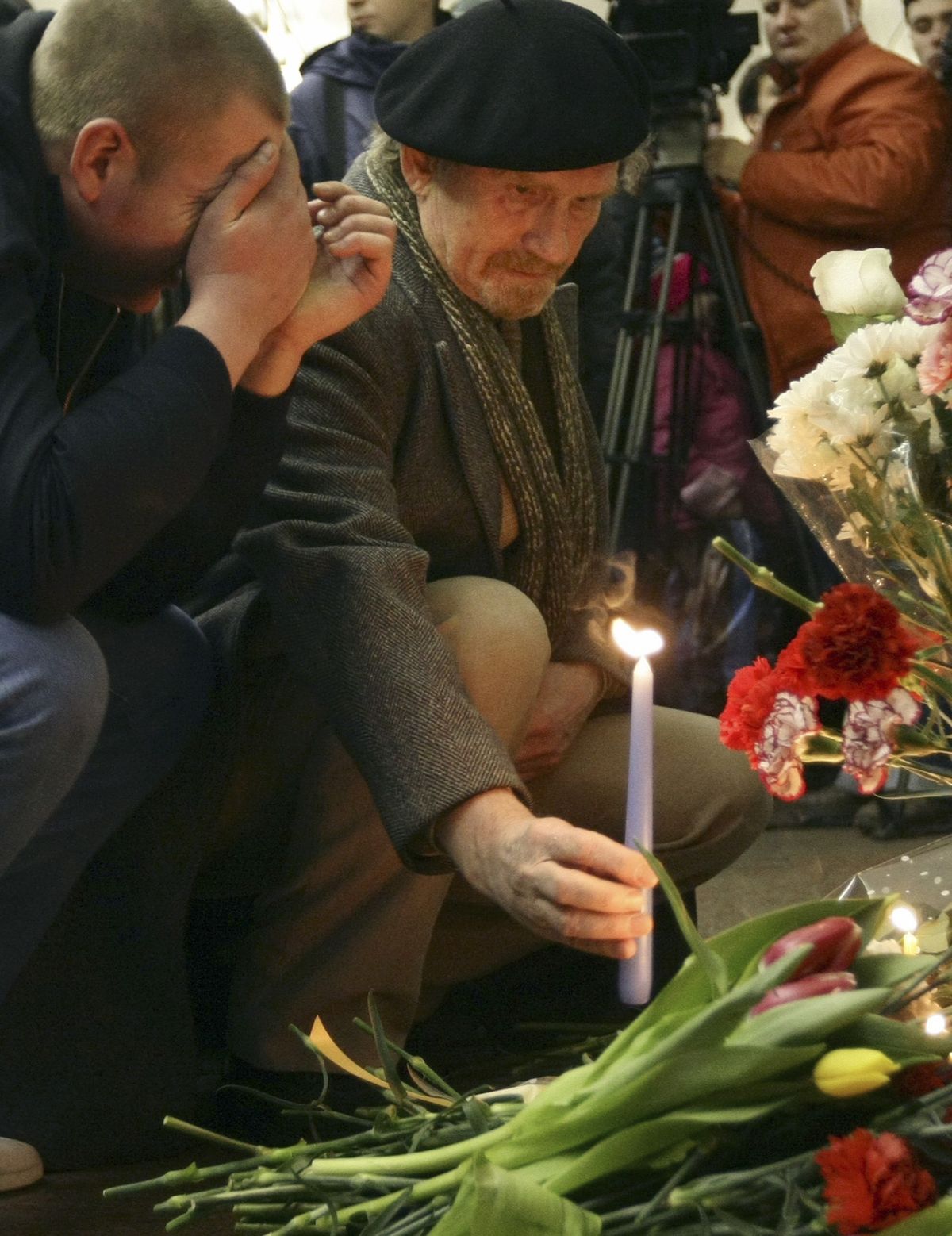Moscow subway toll stands at 38
Putin says ‘terrorists will be destroyed’

MOSCOW – Terror returned to the heart of Russia, with two deadly suicide bombings on the Moscow subway at rush hour, including an attack at the station beneath the headquarters of the secret police.
At least 38 people were killed and more than 60 wounded in Monday morning’s blasts, the first such attacks in Moscow in six years.
Russian police have killed several Islamic militant leaders in the North Caucasus recently, including one last week in the Kabardino-Balkariya region, which raised fears of retaliatory strikes and escalating bloodshed by the militants.
As smoke billowed through the subway tunnels not far from the Kremlin and dazed survivors streamed out of the vast transportation system, al-Qaida-affiliated Web sites were abuzz with celebration of the attacks by the two female suicide bombers.
The bombings showed that the beleaguered rebels are still strong enough to inflict harm on an increasingly assertive Russia, and they followed a warning last month from Chechen rebel leader Doku Umarov that “the war is coming to their cities.”
Prime Minister Vladimir Putin, who built much of his political capital by directing a fierce war against Chechen separatists a decade ago, promised to track down and kill the organizers of what he called a “disgusting” crime.
“The terrorists will be destroyed,” he said on national television.
In a televised meeting with President Dmitry Medvedev, Federal Security Service head Alexander Bortnikov said the remains of the two bombers pointed to a Caucasus connection. “We will continue the fight against terrorism unswervingly and to the end,” Medvedev said.
Umarov, the Chechen rebel leader, has relied on al-Qaida’s financial support and has several al-Qaida emissaries in his entourage, said Alexander Ignatenko, the head of the independent Moscow-based Institute for Religion and Politics, who has closely followed the Islamic insurgency in the Caucasus.
“Al-Qaida has established a presence in the North Caucasus, like they did in Afghanistan, Pakistan, Iraq, Somalia and Europe,” Ignatenko told the Associated Press. The militants’ links with al-Qaida also are recognized by other experts on terrorism.
Militants in the Caucasus have declared the creation of an Islamic state as their top goal. Monday’s first explosion took place just before 8 a.m. at the Lubyanka station in central Moscow, beneath the notorious headquarters of the Federal Security Service or FSB, the KGB’s main successor agency. The FSB is a symbol of power under Putin, a former KGB officer who headed the agency before his election as president in 2000.
About 45 minutes later, a second blast hit the Park Kultury station on the same subway line, which is near renowned Gorky Park. In both cases, the bombs were detonated as the trains pulled into the stations and the doors were opening.
At 4 p.m., the two subway stations reopened and dozens boarded waiting trains.